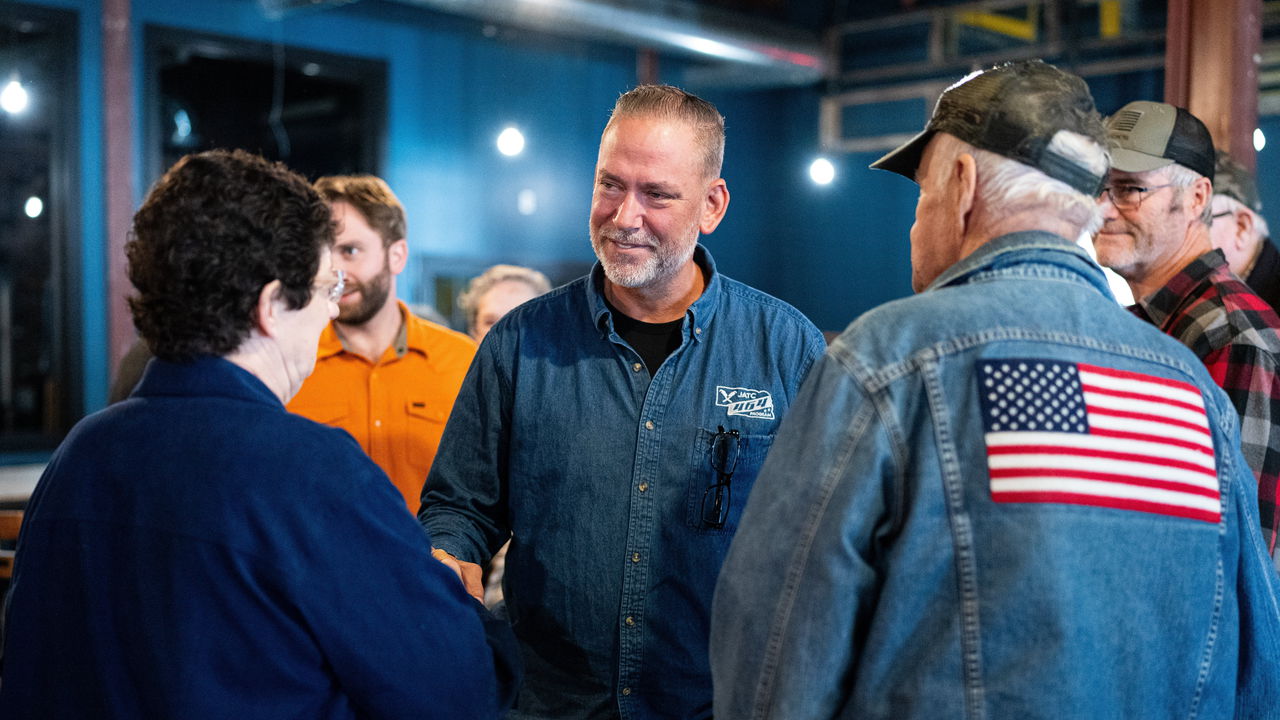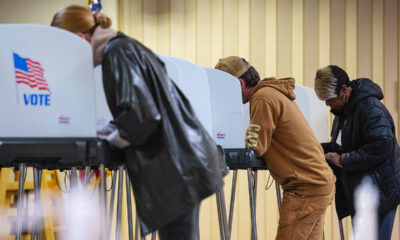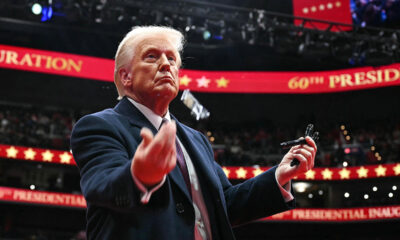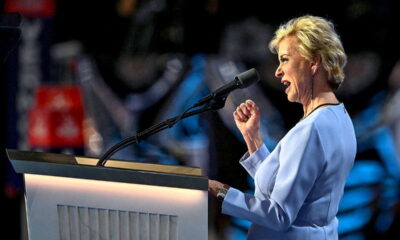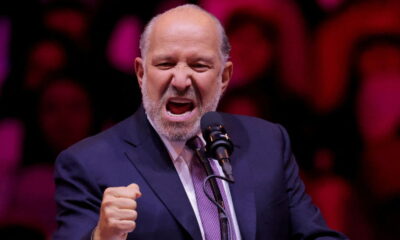AT MOST POLITICAL events in America, the arrival of the candidate is a big deal. A crowd builds, underlings prepare, and eventually the chosen one sweeps in, shaking hands, waving and generally being the centre of attention. That was not what happened when Dan Osborn, an independent candidate for the Senate in Nebraska, arrived at his event in Omaha on October 22nd to discuss Social Security. Instead, he arrived early, then milled around at the back, looking like another member of the crowd. Yet Mr Osborn has ambitions to achieve one of the biggest upsets of this election: unseating a Republican incumbent, Deb Fischer, in what ought to be one of the safest seats in America.
According to a poll conducted for The Economist by YouGov, Mr Osborn is seven points behind Ms Fischer, 50% to 43%, with the rest undecided. That suggests his chance of winning is slim. It cannot, though, be entirely ruled out. Another poll conducted around the same time for the New York Times put Mr Osborn just two points behind. If that poll is correct, and ours is not, then Mr Osborn holds a significant chance of determining the majority in the Senate. Yet even if Ms Fischer sneaks to victory, Mr Osborn’s run could be consequential. He proves that in the least competitive of states, a complacent incumbent in the Senate can still be challenged.
Mr Osborn’s candidacy has a curious origin story. He entered the race last year after Mike Helmink, a union leader who had planned to run himself, dropped out after being refused time off by his employer, and drafted Mr Osborn instead. Initially he courted the Nebraska Democratic Party, which chose not to stand a candidate, but after the deadline to declare for a primary passed, he changed his mind and said he would run as an independent. That meant forsaking the organisational and fundraising help of the Democratic Party—but allowed him to run his own campaign with his own platform.
It seems to be working. Unusually, both Nebraskan Senate seats are up this year. The other Republican incumbent is Pete Ricketts, a member of the billionaire family which owns the Chicago Cubs baseball team. Mr Ricketts was appointed to the job last year after serving as Nebraska’s governor. He faces a special election. According to our poll, Mr Ricketts is leading his Democratic opponent by 18 points. That gives a sense of how many Republican voters Ms Osborn is winning over.
Why is he doing well? It must help that he comes across as a very ordinary Nebraskan. His only previous political experience is as a union leader who led a strike at the Kellogg factory in Omaha, where he worked as a mechanic for 22 years. Before that, he served in the Navy and in the Nebraska national guard. And he is running a smart campaign, attacking Ms Fischer for backing business interests in the state over ordinary Nebraskans. A union-linked super PAC supporting him has bought inexpensive advertising in rural newspapers and on radio stations targeting voters in Ms Fischer’s heartland with surprisingly detailed critiques of her voting.
His key appeal, however, seems to be his independence. Ideologically, Mr Osborn is eclectic. Like any union Democrat, he denounces billionaires and millionaires and special interests, and wants taxes to rise on high-income workers to save Social Security. But he is also highly critical of illegal immigration (which he sees mostly engineered by the boss class to keep wages down). Though he is pro-choice, he stresses he is a Catholic who opposes abortion personally. At times he compares himself to Joe Manchin, the outgoing maverick Democratic-turned-independent senator from West Virginia. His advertisements go further: one of his latest features Osborn voters accusing Ms Fischer of stabbing Mr Trump in the back.
Our poll finds that most Nebraskans expect him to vote with Democrats if he wins. Of those who say this, a large majority are supporting Ms Fischer. But 17% expect him to be a genuine bipartisan—voting roughly evenly. These voters are overwhelmingly backing Mr Osborn, by 83% to 11%. That explains the approach Ms Fischer has taken in response. In the final weeks of the campaign, a super PAC that supports Republicans in the Senate has poured money into the state to pay for adverts suggesting Mr Osborn has links to Bernie Sanders (the socialist senator from Vermont supported the strike at Kellogg). In an interview, Ms Fischer says that “he is not honest”. Her spokesman says he is a “liberal Democrat in disguise”.
That message, and voters’ partisan reflexes, should be enough to save her. Even so, Mr Osborn has shown that Republicans can be vulnerable even in the reddest of states. His success hints at how Democrats are struggling with a perception they “have lost touch with the working class and look at working class areas in a condescending way”, says Robin Johnson, a political scientist at Monmouth College in Illinois. Perhaps the party should consider standing aside in a few more red states. ■

 Blog Post1 week ago
Blog Post1 week ago
 Economics1 week ago
Economics1 week ago
 Finance1 week ago
Finance1 week ago
 Economics1 week ago
Economics1 week ago
 Economics1 week ago
Economics1 week ago
 Personal Finance1 week ago
Personal Finance1 week ago
 Accounting1 week ago
Accounting1 week ago
 Economics1 week ago
Economics1 week ago
